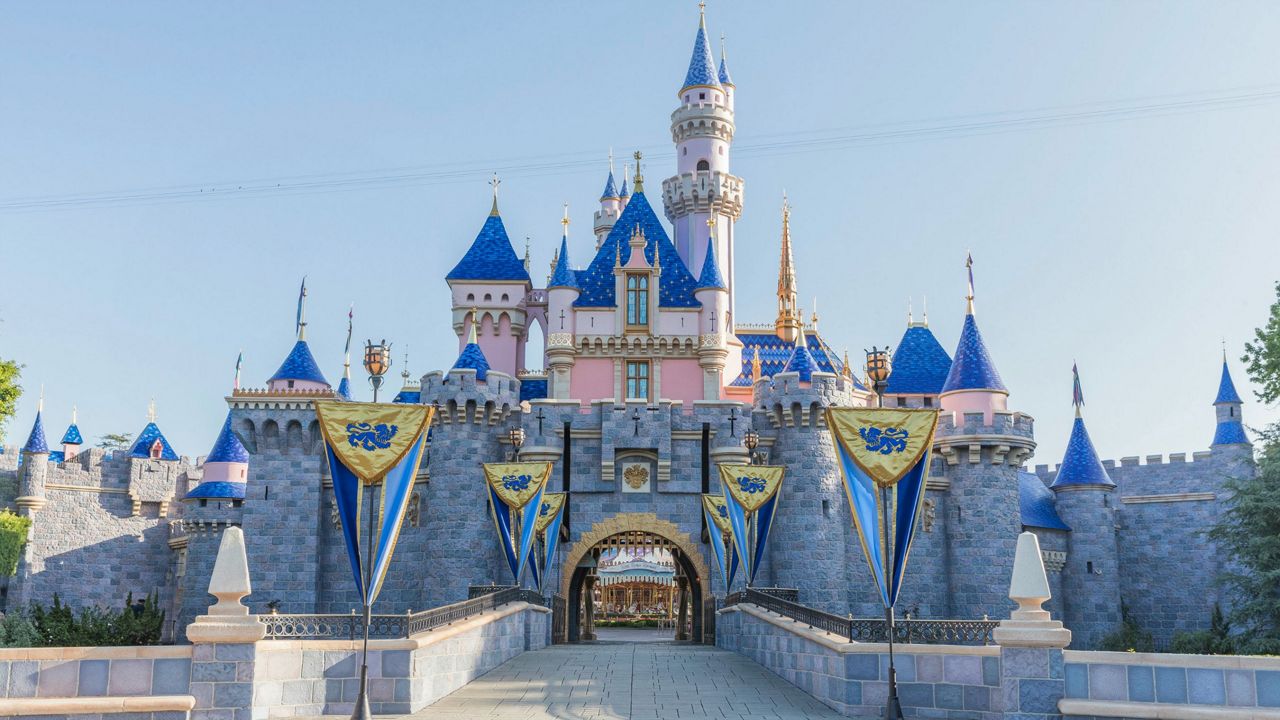As a Disney World annual passholder who hasn’t visited the park in more than five months, Sean Hasle and his family can’t wait to go back to their old stomping ground.
Even during the coronavirus pandemic, Hasle, who hasn’t visited the theme park since March, has booked his family for a three-day stay at Disney's Polynesian Village Resort in Orlando during Halloween.
“I feel like [the Walt] Disney Co., it is in their best interest to keep people safe,” said Hasle, a Fort Lauderdale, Fla. resident. “They’ve taken very stringent safety measures. They have a safety procedure, and they are on the front side of this.”
But while he and his family are itching to go back, several parents aren’t as ready or comfortable to visit Walt Disney World, Disneyland, or any major theme parks any time soon.
A new survey released earlier this month from research and polling data firm Morning Consult and The Hollywood Reporter found that an average of 71 percent of nearly 1,000 parents surveyed nationwide would not be interested in visiting a theme park this year. Even with safety precautions such as limiting attendance and masks requirements, about a third of parents would be less likely to visit a theme park this year.
The survey highlights consumers' comfort level with visiting a theme park during a global health pandemic and the sharp decline in attendance for the multi-billion dollar theme park industry in the United States. As of noon Monday, the U.S. has more than 5.06 million coronavirus cases with 163,156 deaths, Johns Hopkins University reported.
According to the Themed Entertainment Association, a non-profit trade organization that represents professionals and companies in the theme park and museum industry, more than 159 million people visited the top 20 theme parks in the U.S., including Disney and Universal theme parks in 2019, a 1 percent uptick from 2018.
More than 49 million people visited a theme park in California; in Florida, nearly 89 million people visited a theme park in 2019, according to the Themed Entertainment Association's annual Themed Index attendance report. The Magic Kingdom in Walt Disney World led the way with nearly 21 million visitors, while Disneyland in Anaheim brought in 18.6 million guests.
The Morning Consult and The Hollywood Reporter survey conducted in late July found that 78 percent of parents would not be interested in visiting a theme park this summer; 70 percent in the fall and 66 percent in the winter. Specifically, only 26 percent of parents said they were interested in going to Walt Disney World this summer, while 24 percent said the same of Disneyland, according to the report.
Next year bodes better for theme park attendance as only 49 percent of parents surveyed said they would not be willing to visit a theme park in the spring and 42 percent in the summer.
So far, only a handful of major theme parks have reopened nationwide. Cedar Point in Ohio has reopened and so have the Universal Orlando Resort parks, Legoland, and Walt Disney World in Florida. All have new safety procedures such as capping attendance and requiring visitors to wear masks. Theme parks such as Disneyland, Universal Studios Hollywood, Legoland, and Knott’s Berry Farm in California have remained closed.
It is unclear when the California theme parks will reopen. In a previous statement, Disney officials said they are waiting for the state to issue theme park reopening guidelines.
The longer these theme parks remain closed or at limited capacity, the bigger the economic fallout, said Theme Park Insider editor Robert Niles. Theme Park Insider is an online news site that follows the theme park industry.
Niles said he doesn’t see consumer confidence or theme park attendance levels coming back to pre-coronavirus days until there is a vaccine or medical treatment to prevent the spread of the virus.
“This has been devastating for the entire theme park industry, not just theme parks but everything associated with travel vacations,” Niles said. “The airlines, rental cars, hotels, the McDonald’s in Georgia along the interstate that attracts visitors heading to Disney World, there are so many businesses impacted by these closures.”
Pre-coronavirus, the theme park industry in the U.S. was performing well. Disneyland had released The Rise of the Resistance, completing Star Wars: Galaxy’s Edge in Anaheim and was under construction for a new Marvel Avenger’s campus. Universal Studios Hollywood was building a Super Nintendo World and an attraction based on The Secret Life of Pets movies.
Now, “the industry is at a complete standstill,” Niles said. “No one knows when people are going to come back to theme parks. I’ve been hearing 2023 or 2024. You have to remember the economic fallout from all of this. People aren’t going to come back until it’s safe, but they are also not going to come back if they are broke.”
Judith Rubin, the editor of the Themed Entertainment Association Themed Index report, said getting consumers back to the theme parks is not going to happen overnight.
“It is simply going to take time, and that [theme] parks should continue to implement best practices, smart reinvestments that enhance the guest experience, extends length of stay, and gives people a reason to return,” Rubin said.
Hasle understands that he is in the minority when it comes to wanting to visit Walt Disney World. Despite surging record number of coronavirus cases in Florida, he is still willing to chance it.
He also said Disney has taken other precautions with visitors. Park hopping (or visiting different Walt Disney World theme parks in a single day) is not allowed.
“Everybody needs to make their own decisions for themselves,” said Hasle. “There’s a cabin fever side of this. We believe it is needed and a safe place to go. If you trust the brand, maybe you’ll feel the same way that I do. If you don’t feel safe, then you should stay home.”



